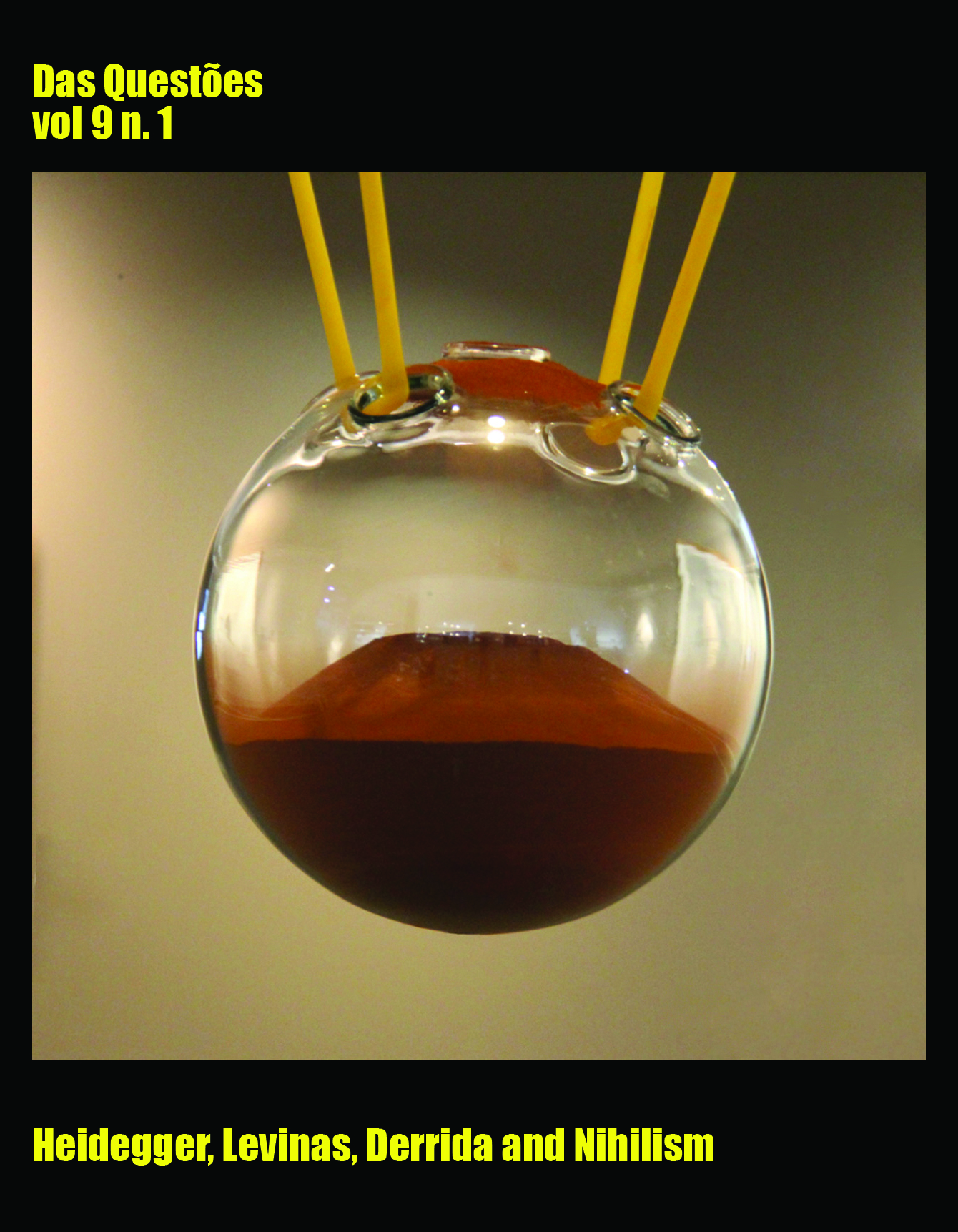TRADUÇÃO ARTIFICIAL: NIILISMO, PHYSIS E POSICIONALIDADE
DOI:
https://doi.org/10.26512/dasquestoes.v9i1.31526Keywords:
Tradução artificial; Inteligência artificial; ΦÏσις (Physis); posicionalidade (Gestell); Niilismo; Martin HeideggerAbstract
This article departs from the event of "artificial translation" to draw questions about the concepts of physis and positionality (Gestell), as they appear related by Heidegger, seeking to provide subsidies for a debate that considers the ontological constitution of artificial intelligibilities in the light of what that same author recognizes as the nihilistic essence that is inherent to metaphysics as a history of being.
Downloads
References
DERRIDA, Jacques. A farmácia de Platão. 3. ed. São Paulo: Editora Iluminuras, 2005.
DERRIDA, Jacques. Gramatologia. São Paulo: Editoria Perspectiva, 2006
HEIDEGGER, Martin. Aletheia (Heráclito, Fragmento 16). In: Ensaios e Conferências ”“ 8. ed. ”“ Petrópolis: Vozes; Bragança Paulista: Editora Universitária São Francisco, 2012.
HEIDEGGER, Martin. Insight Into That Which Is: Bremen Lectures 1949; Translated by Andrew J. Mitchell. Bloomington and Indianapolis: Indiana University Press, 2012a.
HEIDEGGER, Martin. A palavra de Nietzsche "Deus morreu". In: Caminhos de Floresta. Trad. André Sá. Lisboa: Calouste Gulbekian, 2002.
Downloads
Published
How to Cite
Issue
Section
License
Authors who publish in this journal agree to the following terms:
Authors maintain the copyright and grant the journal the right of first publication, the work being simultaneously licensed under the Creative Commons Attribution License which allows the sharing of the work with recognition of the authorship of the work and initial publication in this journal.
Authors are authorized to take additional contracts separately, for non-exclusive distribution of the version of the work published in this journal (eg publish in institutional repository or as a book chapter), with acknowledgment of authorship and initial publication in this journal.
Authors are allowed and encouraged to publish and distribute their work online (eg in institutional repositories or on their personal page) at any point before or during the editorial process, as this can generate productive changes as well as increase the impact and the citation of the published work.



